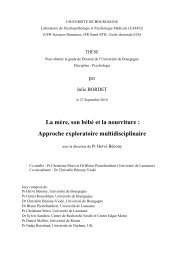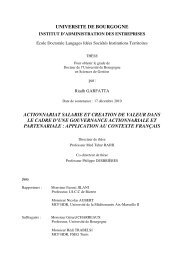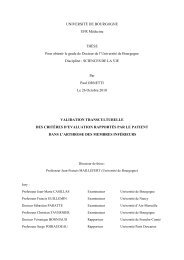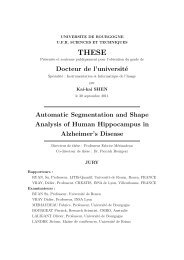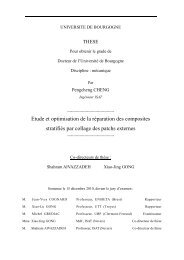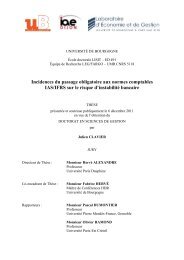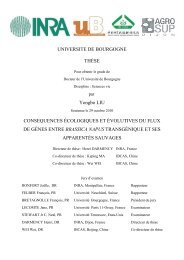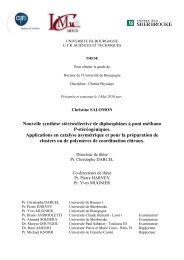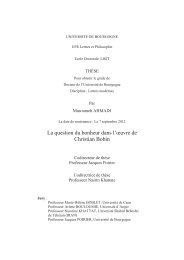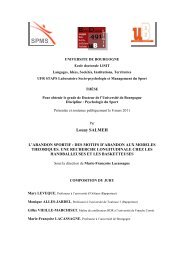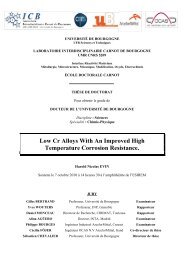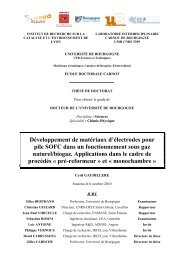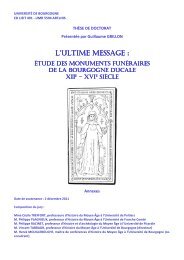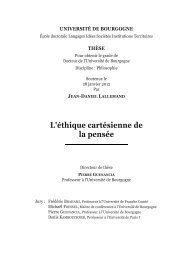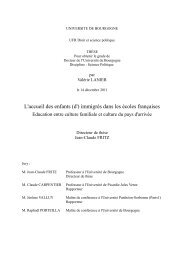Higher education in Asian countries and the role of international ...
Higher education in Asian countries and the role of international ...
Higher education in Asian countries and the role of international ...
You also want an ePaper? Increase the reach of your titles
YUMPU automatically turns print PDFs into web optimized ePapers that Google loves.
23<br />
effectiveness, <strong>in</strong>ternational relations (IR) <strong>the</strong>ory has been unable to expla<strong>in</strong> how policies <strong>and</strong><br />
organization relate to each o<strong>the</strong>r <strong>and</strong> impact effectiveness” (Haack & Mathiason, 2010).<br />
2.3 <strong>Higher</strong> <strong>education</strong>: an emerg<strong>in</strong>g sector <strong>and</strong> a field <strong>of</strong> study<br />
Peters (2003) has identified three major factors that led to recent proliferation <strong>and</strong> expansion <strong>of</strong><br />
higher <strong>education</strong>, <strong>the</strong>se factors are: capitalization <strong>of</strong> knowledge, decentralization <strong>of</strong> <strong>in</strong>formation<br />
<strong>and</strong> use <strong>of</strong> technology <strong>in</strong> <strong>education</strong>. All <strong>the</strong>se factors helped create a favorable environment for<br />
globalization <strong>of</strong> <strong>education</strong> (Peters, 2003). Today globalization is a reality that is shaped by an<br />
<strong>in</strong>creas<strong>in</strong>gly <strong>in</strong>tegrated world economy, new <strong>in</strong>formation <strong>and</strong> communications technology (ICT),<br />
<strong>the</strong> emergence <strong>of</strong> an <strong>in</strong>ternational knowledge network, <strong>the</strong> <strong>role</strong> <strong>of</strong> <strong>the</strong> English language, <strong>and</strong><br />
o<strong>the</strong>r forces beyond <strong>the</strong> control <strong>of</strong> academic <strong>in</strong>stitutions (Altbach, Reisberg, & Rumbley, 2009).<br />
Globalization, <strong>in</strong>ternationalization <strong>and</strong> knowledge based economic system has changed <strong>the</strong> frame<br />
<strong>of</strong> reference for higher <strong>education</strong>. In this modern sett<strong>in</strong>g an <strong>in</strong>novative system based on<br />
<strong>in</strong>ternational agents, new dynamics, <strong>and</strong> changed social, political <strong>and</strong> economic context has<br />
emerged, which has resulted <strong>in</strong> <strong>in</strong>tensified activities <strong>of</strong> <strong>in</strong>ternational organization both<br />
quantitatively <strong>and</strong> qualitatively <strong>and</strong> approach<strong>in</strong>g <strong>education</strong> <strong>in</strong> a global perspective (Amaral,<br />
2010).<br />
<strong>Higher</strong> <strong>education</strong> <strong>and</strong> research capacity is important for all <strong>countries</strong> <strong>in</strong>clud<strong>in</strong>g for low <strong>and</strong><br />
middle <strong>in</strong>come <strong>countries</strong> because it contribute to <strong>the</strong>ir economies, effective management <strong>and</strong><br />
sound policy-mak<strong>in</strong>g <strong>in</strong> <strong>the</strong>ir governments as well as to <strong>the</strong>ir civil societies, <strong>and</strong> to <strong>the</strong><br />
preservation <strong>of</strong> <strong>the</strong>ir national histories, cultures, <strong>and</strong> identities (Johnstone & Marcucci, 2007).<br />
The higher <strong>education</strong> <strong>in</strong>stitutions <strong>in</strong> <strong>the</strong> less developed <strong>countries</strong> (LDCs) are faced with two fold<br />
pressure; a need to exp<strong>and</strong> <strong>and</strong> a dem<strong>and</strong> to enhance quality. But <strong>the</strong> problems <strong>of</strong> <strong>in</strong>sufficient<br />
resources available to higher <strong>education</strong> <strong>and</strong> <strong>in</strong>efficient utilization <strong>of</strong> exist<strong>in</strong>g resources are<br />
affect<strong>in</strong>g both <strong>the</strong> process <strong>of</strong> expansion <strong>and</strong> <strong>the</strong> mechanism <strong>of</strong> quality <strong>education</strong> provision. The<br />
poor counties are f<strong>in</strong>d<strong>in</strong>g it hard to respond properly to <strong>the</strong> chang<strong>in</strong>g national needs <strong>and</strong><br />
<strong>in</strong>ternational dem<strong>and</strong>s. So it is result<strong>in</strong>g <strong>in</strong> <strong>the</strong> provision <strong>of</strong> sub-st<strong>and</strong>ard higher <strong>education</strong>, which<br />
is not <strong>in</strong> <strong>the</strong> national <strong>in</strong>terest as it is <strong>the</strong> wastage <strong>of</strong> time <strong>and</strong> energies (Ali, 2011).<br />
S<strong>in</strong>ce <strong>the</strong> emergence <strong>of</strong> mass higher <strong>education</strong>, many economist <strong>in</strong>clud<strong>in</strong>g Jacob M<strong>in</strong>cer, Robert<br />
W. Fogel, Milton Friedman, Ronald Harry Coase, Friedrich A. von Hayek, Gary Becker <strong>and</strong><br />
Walter Williams have contributed <strong>in</strong> <strong>the</strong> development <strong>of</strong> economic <strong>the</strong>ories particularly human



